Opinions & Interviews
BSCEE Group Annual Conference in Minsk expected to focus on major banking supervision issues
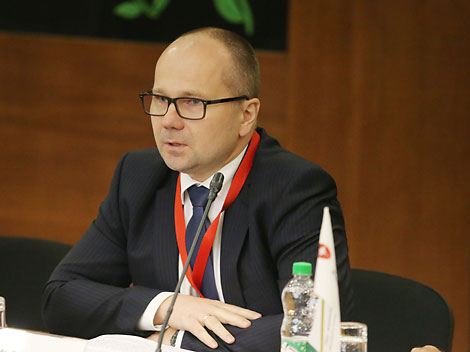
MINSK, 31 May (BelTA) - Belarus is looking forward to the meaningful discussion on the most important issues in the field of banking supervision, Dmitry Lapko, Deputy Chairman of the Board of the National Bank of the Republic of Belarus, said during the 30th BSCEE Group Annual Conference, BelTA has learned.
“The topics proposed for discussion are the most urgent ones at the moment. As the events of the recent years have shown, the commitment of the banking community to the complicated internal models of evaluation of the credit, market, and operational risks, including as a result of distrust of the assessments of external rating agencies, have not helped enhance banks stability and improve the quality of their capital. We believe that it was one of the reasons why the Basel Committee developed the renewed standards of calculation of capital to cover market risk, managing interest rare risk in a banking book, and drafted the similar documents on credit and operational risks within Basel II/III in which the standardized approaches to the evaluation of these risks were updated. These standards are expected to bring significant changes in calculating banks regulatory capital ratios and, possibly, changes in their value. In this regard we are looking to get the information on the new standards straight from the source, from the deputy secretary general of the Basel Committee Secretariat. We believe that a lot of participants will be interested to learn about the accumulated experience of the implementation of these innovations in the EU member countries,” Dmitry Lapko said.
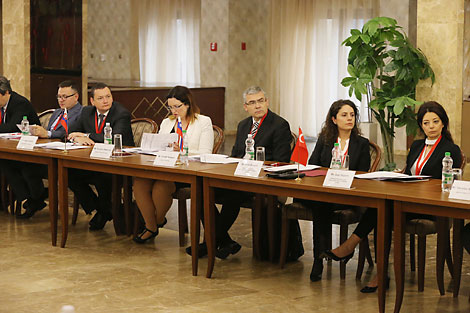 According to him, independent assets quality reviews, which were carried out in several countries and which revealed a number of deficiencies in the practice of provisioning by banks, collateral evaluation and other aspects, made an impact on the value of banks regulatory capital ratios. “We believe that the discussion of the national approaches to the application of supervisory measures following the assets quality reviews and banks plans on the ways of improving the quality of assets will make it possible to exchange the experience of tackling these problems in different countries,” he said.
According to him, independent assets quality reviews, which were carried out in several countries and which revealed a number of deficiencies in the practice of provisioning by banks, collateral evaluation and other aspects, made an impact on the value of banks regulatory capital ratios. “We believe that the discussion of the national approaches to the application of supervisory measures following the assets quality reviews and banks plans on the ways of improving the quality of assets will make it possible to exchange the experience of tackling these problems in different countries,” he said.
The Minsk conference will also focus on risks of new financial technologies. “We tried to assess the development prospects for banking supervision in the future which are directly related to the changes in the technology of provision of financial services by banks. These include a remote access to accounts, provision of the 24/7 services to clients, use of cloud technologies, block-chain, bitcoin, and other possibilities, the rapid development of which we see today. It is clear that a new format of banks activities bears tremendous risks which are not only operational but also reputational ones. We must take measures to ensure the safety of money flows in the banking sector in the new conditions. This is why prudential requirements to the management of such risks may not and should not be limited to regulatory capital only. We hope that the discussion of such risks will make it possible to combine efforts of the supervisors in counteracting these new challenges,” Dmitry Lapko said.
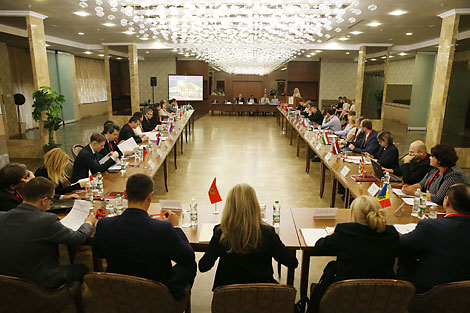 The 30th Annual Conference of the Group of Banking Supervisors from Central and Eastern Europe (BSCEE Group) is running in Minsk from 31 May to 2 June. Belarus’ National Bank is presiding in the BSCEE Group in 2017. The forum has brought together around 50 representatives of supervisory bodies from 23 European countries. The annual conference aims to review the implementation of the new approaches of the Basel Committee to estimate credit and operational risks within Basel III, the AQR procedure, discuss the risks of new financial technologies and their impact on the banking sector, and to help the member states exchange experience in this field.
The 30th Annual Conference of the Group of Banking Supervisors from Central and Eastern Europe (BSCEE Group) is running in Minsk from 31 May to 2 June. Belarus’ National Bank is presiding in the BSCEE Group in 2017. The forum has brought together around 50 representatives of supervisory bodies from 23 European countries. The annual conference aims to review the implementation of the new approaches of the Basel Committee to estimate credit and operational risks within Basel III, the AQR procedure, discuss the risks of new financial technologies and their impact on the banking sector, and to help the member states exchange experience in this field.
The BSCEE Group was established in 1991. Belarus joined the group in 1996.
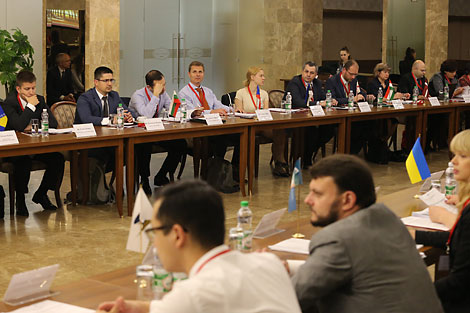 The BSCEE Group is designed to maintain cooperation between national supervisors of Central and Eastern Europe, promote the implementation of banking supervisory standards, provide a possibility to exchange experience in theory and practice of banking supervision and other relevant information, help carry out research and educational programs.
The BSCEE Group is designed to maintain cooperation between national supervisors of Central and Eastern Europe, promote the implementation of banking supervisory standards, provide a possibility to exchange experience in theory and practice of banking supervision and other relevant information, help carry out research and educational programs.
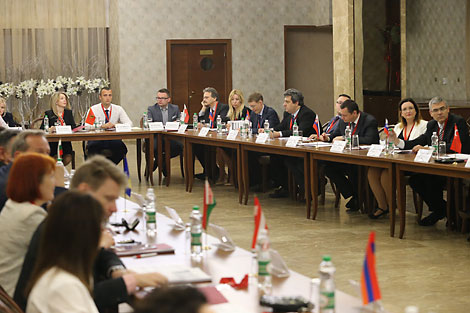







 print version
print version make home page
make home page add to bookmarks
add to bookmarks

